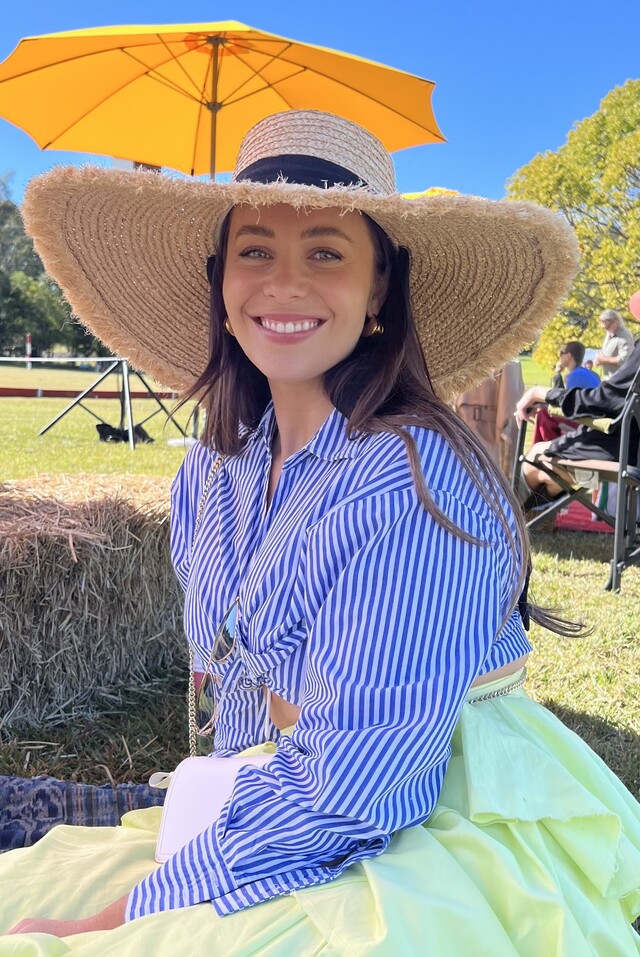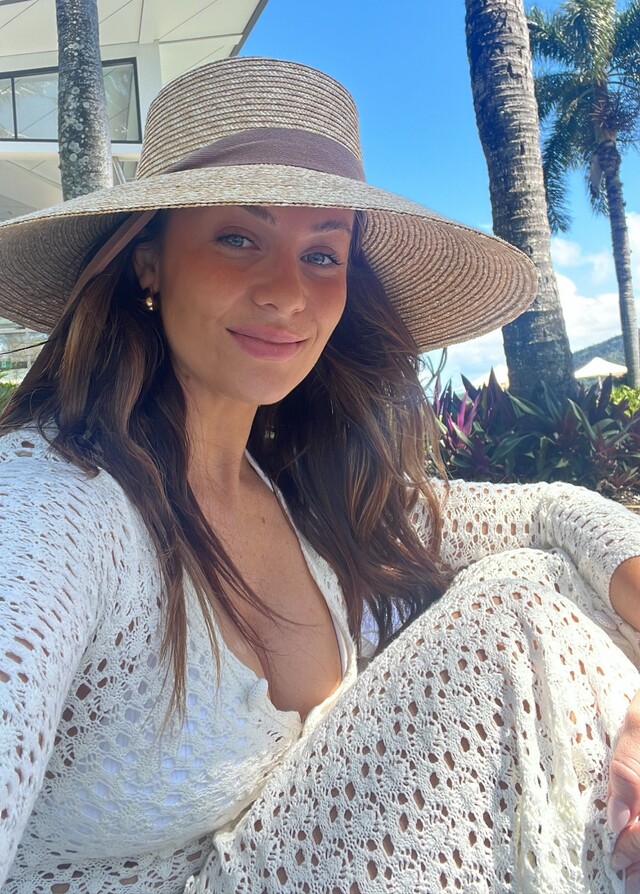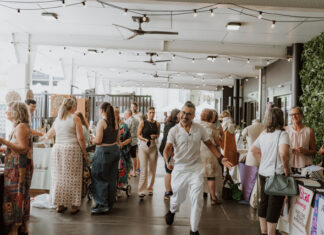A melanoma diagnosis at the age of 27 left Noosa local Ashling Lorger feeling guilty for her teen years spent tanning at the beach with friends and lying to her mum about wearing sunscreen.
The former Below Deck star has now joined this year’s national Melanoma March campaign, urging Australians to help raise vital research funds and add their voices to calls to stop the glamourisation of tanning.
Her family knows all too well the seriousness of sun safety, after Ashling’s father was diagnosed with stage four melanoma when she was six years old.
“I was so little when it happened. I remember seeing my mum extremely upset,“ Ashling said.
“We visited Dad in the hospital and I saw the big scar. I remember him saying he had 64 staples and 12 stitches. He had to go through a course of radiotherapy.
“Twenty years ago, all of the surgeons and specialists at that time, they said that he might not make it because technology wasn’t up to scratch as to where they would have liked it to be. So, my family kind of prepared for the worst. He was a bit of a miracle that came back from stage 4 and got the all clear. He’s still alive and kicking at 64 years of age.“
As expected, Ashling’s mum was super vigil with her about sun safety growing up, which worked until she reached high school and started to fold to peer pressure.
“A tan was a good thing growing up here in Noosa,“ she said.
“I would spend a lot of time on the beach, so I was definitely influenced by my friends around me to get a real tan.
“I will admit that I did a lot of my damage probably from the age of 14 to 16 or 17. By the time I was 18, I was getting all of my regular skin checks and they found a BCC (basal cell carcinoma) on top of my left breast and I had that removed. So from the age of 18, that’s when I’ve been extremely weary of sun protection.“
Ashling blamed herself for the diagnosis, wishing she just listened to her mum.
“I felt guilty because I knew that I had been sun-burnt numerous times in my younger years and I always said to mum ’Yeah, I’ve got sunblock on’, when I actually didn’t. I was actually wearing tanning oil and sitting out in the sun all day long at the beach on the school holidays. There is a history of melanoma in my family and I should’ve known better.
“I was lucky enough to keep up with my six monthly skin checks and we identified it at an early stage so that’s kind of what saved me. My doctors that found it, they said if I had left it another six or 12 months, it could have been a different story. You just don’t know how quickly and how rapidly melanoma can transform.“
Australia has the highest melanoma rates in the world. One person is diagnosed with melanoma every 30 minutes and one person dies from the disease every six hours.
It is the most common cancer affecting 20 to 39-year-old Australians.
“Tanning is not healthy or beautiful. It’s not worth the wrinkles; the scars; let alone your life,“ Ashling said.
“If you want to avoid a potential melanoma diagnosis, sun-protection is vital, even more so up here where the sun is so strong.“
Melanoma Institute Australia’s (MIA) Melanoma March Sunshine Coast will be held on Sunday 24 March at Buhk Family Park, Alexandra Headland.
Organised by volunteer committees impacted by melanoma, the Melanoma March events raise vital funds for melanoma research, which will also impact other cancers, and provide an opportunity for patients and families to come together to support each other and remember those lost to the disease.
This year’s campaign also aims to shine a spotlight on the dangers of tanning and the need for greater investment in national prevention strategies.
MIA chief executive officer Matthew Browne said, “Changing attitudes towards tanning and improving the community’s understanding about prevention, early detection, and year-round sun safety is crucial to stopping more lives being cut short by melanoma.“
Those who can’t attend an event can still support the campaign by getting active and hosting a March Your Way activity with friends or individually.
To register or donate to Melanoma March, go to melanomamarch.org.au.









